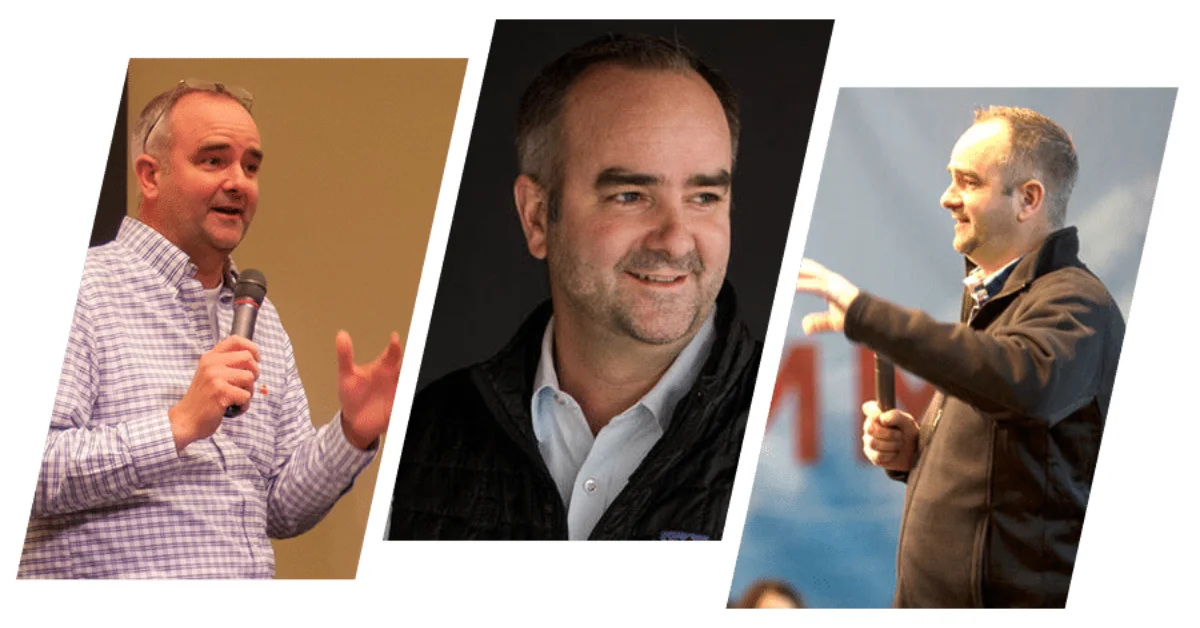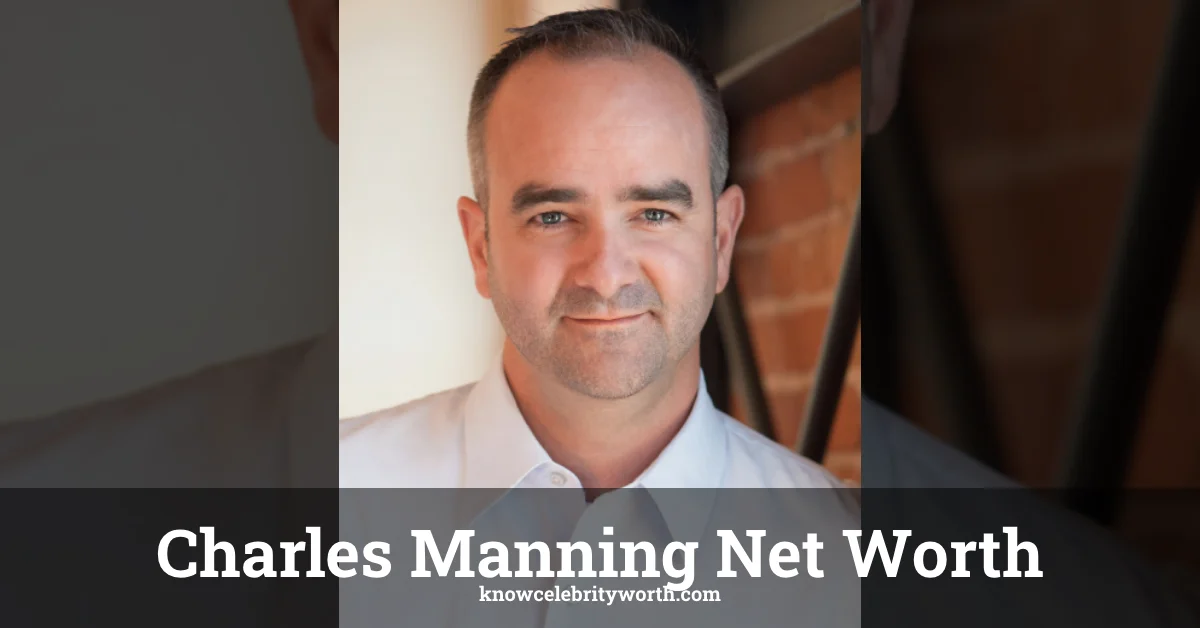Charles Manning stands among successful business leaders who turned tech innovations into wealth. Many know him as the CEO and founder of Kochava, a mobile analytics company that helps brands measure their marketing. His journey from tech specialist to wealthy entrepreneur makes him worth studying.
Charles Manning Net Worth
Charles Manning’s net worth sits at approximately $15-20 million as of 2025. This wealth estimate puts him in the mid-tier of tech executives who built and run their own companies. His wealth comes mainly from his ownership stake in Kochava, the mobile analytics company he founded in 2011. Unlike public figures who must disclose earnings, Manning keeps most financial details private, making this estimate based on industry analysis and company valuation metrics.
When compared to other tech company founders of similar-sized firms, Manning’s wealth falls within expected ranges. The mobile analytics market growth has positively affected his financial standing over recent years.
Who Is Charles Manning?
Charles Manning built his reputation as a tech innovator and business leader specializing in mobile analytics and marketing measurement. Before starting Kochava, Manning worked in various technology roles focusing on mobile platforms and telecommunications. His background combines technical expertise with business acumen.
Born and based in Sandpoint, Idaho, Manning chose to build his tech company away from traditional tech hubs like Silicon Valley. This decision reflects his independent approach to business. Manning studied computer science, which gave him the technical foundation to understand mobile technology challenges.
Manning’s path to wealth began when he spotted a gap in the mobile marketing industry – the need for reliable measurement tools as smartphones changed how people shopped and engaged with brands. This insight led him to create Kochava, which became his primary wealth generator.
Career
Charles Manning’s career took off when he founded Kochava in 2011. The company specializes in mobile attribution, analytics, and optimization services that help advertisers understand their marketing performance. Under his leadership, Kochava grew from a small startup to an industry player with global clients.
Before Kochava, Manning worked at PLAYXPERT, where he served as CEO from 2006 to 2011. This earlier venture gave him experience in gaming technology and user engagement tools. His time there built valuable relationships within the tech industry that later helped Kochava secure major clients.
A major career breakthrough came when Kochava secured partnerships with major brands and advertising networks. These deals established the company as a trusted provider in the complex mobile marketing ecosystem. Manning’s ability to explain technical concepts to marketing executives helped drive these partnerships.
The growth of mobile advertising spending from billions to hundreds of billions created perfect timing for Manning’s business. As companies shifted more money into mobile platforms, the need for Manning’s measurement tools grew substantially, directly increasing company revenue and his personal wealth.
Achievements
Throughout his career, Charles Manning achieved several professional milestones that boosted his financial success. Under his guidance, Kochava developed the Free App Analytics tool, which brought the company attention by offering entry-level services to smaller businesses while selling premium solutions to larger enterprises.
Manning received recognition in the tech community through speaking engagements at major industry conferences such as Mobile World Congress and Advertising Week. These appearances positioned him as a thought leader in mobile analytics and helped attract clients to Kochava.
A significant achievement came when Manning secured substantial funding rounds for Kochava, including investments that pushed the company valuation higher. Though specific investment amounts remain private, industry sources suggest the company has received tens of millions in funding, directly increasing Manning’s net worth through his ownership stake.
Manning’s expertise earned him positions on industry advisory boards, further cementing his reputation in the mobile marketing world. Each of these achievements contributed to Kochava’s growth and, consequently, Manning’s personal wealth accumulation.
Income Sources
Charles Manning’s wealth comes from multiple streams, with his primary income source being his ownership stake in Kochava. As founder and CEO, Manning likely holds a significant equity position, which constitutes the largest portion of his wealth.
His income breaks down into these main categories:
- Salary and compensation as Kochava CEO – likely in the mid-six-figure range annually
- Equity value in Kochava – constituting most of his wealth
- Speaking engagements at industry conferences – supplementary income
- Potential investments in other tech startups or ventures
- Board positions or advisory roles at other companies
The mobile analytics market has grown significantly over the past decade as businesses increasingly rely on data to drive marketing decisions. This industry expansion directly benefits Kochava’s valuation and, consequently, Manning’s net worth.
Unlike publicly traded company executives who must disclose compensation, Manning’s private company status allows greater financial privacy. However, based on similar companies and roles, his annual compensation package likely reaches into seven figures when combining salary, bonuses, and stock options.
Assets & Investments
Charles Manning maintains a diverse portfolio of assets beyond his Kochava holdings. While specific details remain private, his investment strategy likely follows patterns common among tech entrepreneurs of his stature.
His investment portfolio presumably includes:
Manning likely holds significant real estate investments, both personal and commercial. His primary residential property in Sandpoint, Idaho offers both lifestyle benefits and investment value in a growing region. Tech executives often invest in commercial real estate in emerging markets as well.
Technology investments form another probable asset category. Manning’s industry connections give him access to promising startups before they reach public markets. Early-stage investments in complementary technologies would align with his expertise and network.
Traditional investment vehicles such as stocks, bonds, and market funds likely round out his portfolio. Wealthy tech executives typically allocate portions of their wealth to managed funds that provide diversification beyond their primary industry.
Manning may hold private investments in businesses outside the tech sector. Restaurants, retail establishments, or service businesses in his local area would provide income diversification while supporting his community.
The value of Manning’s Kochava ownership remains his most significant asset. As a private company, Kochava’s exact valuation isn’t public information, but industry analysts estimate it in the range of $100-200 million based on comparable companies and reported client relationships.
Lifestyle

Charles Manning maintains a relatively low-profile lifestyle compared to many tech entrepreneurs of similar wealth. Unlike Silicon Valley executives known for lavish displays, Manning chose to build his life and company in Sandpoint, Idaho, reflecting his preference for quality of life over status symbols.
His spending habits appear practical rather than flashy. While he likely enjoys comfort, reports suggest Manning prefers investing in experiences and practical luxury rather than ostentatious displays of wealth. This approach aligns with many successful entrepreneurs who build sustainable wealth.
Manning supports local community initiatives in Idaho, particularly those focused on education and technology development in rural areas. This philanthropy reflects his commitment to developing tech talent outside traditional hubs.
Work constitutes a significant portion of Manning’s lifestyle, with reports suggesting he maintains substantial involvement in Kochava’s operations and strategic direction. This hands-on approach to his business likely limits time for excessive spending but continues building his wealth.
His lifestyle choices reflect the balance many successful entrepreneurs strike – enjoying the fruits of their success while continuing to grow their businesses and wealth through disciplined financial management.
House
Charles Manning owns his primary residence in Sandpoint, Idaho, a scenic lakeside community known for its natural beauty and outdoor recreation opportunities. Property records indicate a home valued between $1-2 million, modest compared to tech executives in major metropolitan areas but substantial for the region.
The choice to base himself and his company in Sandpoint rather than a major tech hub reflects both lifestyle preferences and business strategy. Property costs in Idaho allow for more spacious accommodations while maintaining proximity to nature – a benefit many tech leaders now seek.
Manning reportedly owns additional vacation property, possibly in warmer climates for winter retreats. Such properties serve both as personal enjoyment assets and long-term investments as real estate in desirable locations typically appreciates over time.
His real estate holdings likely include investment properties beyond personal use. Commercial real estate investments, particularly in growing western markets, would provide income diversification and tax advantages commonly sought by wealthy individuals.
Yearly Net Worth Breakdown
Charles Manning’s wealth has grown steadily over recent years, tracking with Kochava’s expansion and the broader mobile analytics market growth. While exact figures remain private, industry analysis suggests the following trajectory:
- 2018: Estimated $8-10 million – Early growth phase as mobile analytics became essential
- 2019: Estimated $10-12 million – Expansion of client base and service offerings
- 2020: Estimated $11-13 million – Slight growth despite pandemic market uncertainty
- 2021: Estimated $12-15 million – Recovery and adaptation to privacy changes in mobile ecosystem
- 2022: Estimated $13-16 million – Strategic pivots to address changing market conditions
- 2023: Estimated $14-18 million – Expansion into new analytics verticals
- 2024: Estimated $15-19 million – Growth from new product offerings and partnership
- 2025: Estimated $15-20 million – Current valuation reflecting continued business development
This growth pattern follows Kochava’s business expansion and the increasing importance of mobile analytics in the marketing ecosystem. The steady rather than explosive growth reflects the sustainable business model Manning built.
Several factors influenced this wealth trajectory:
- Industry shifts toward data-driven marketing increased demand for Kochava’s services
- Privacy changes in mobile ecosystems created both challenges and opportunities
- Expansion of Kochava’s client base to include larger enterprise customers
- Strategic product developments addressing emerging market needs
- Possible additional funding rounds or reinvestment of profits
The consistency of growth suggests Manning built sustainable value rather than chasing short-term gains, a pattern common among entrepreneurs focused on long-term success.
Final Thoughts
Charles Manning built his estimated $15-20 million net worth through entrepreneurship in the growing mobile analytics field. His wealth story demonstrates how identifying industry needs and building solutions can create significant financial success.
Unlike inherited wealth or overnight success stories, Manning’s financial growth reflects steady business development and industry expertise applied over more than a decade. This pattern matches many successful tech entrepreneurs who build sustainable companies rather than chasing quick exits.
The privacy Manning maintains around his finances reflects his focus on business building rather than personal promotion. This approach, while making exact wealth assessment challenging, aligns with many successful entrepreneurs who prefer letting their work speak for itself.
For those interested in business success stories, Manning provides an interesting case study in building wealth through specialized expertise and timing market entry to match emerging needs. His choice to build his company outside traditional tech centers also offers lessons about balancing business opportunities with lifestyle preferences.
As mobile technology continues evolving, Manning remains positioned to adapt his business and potentially grow his wealth further in coming years.
